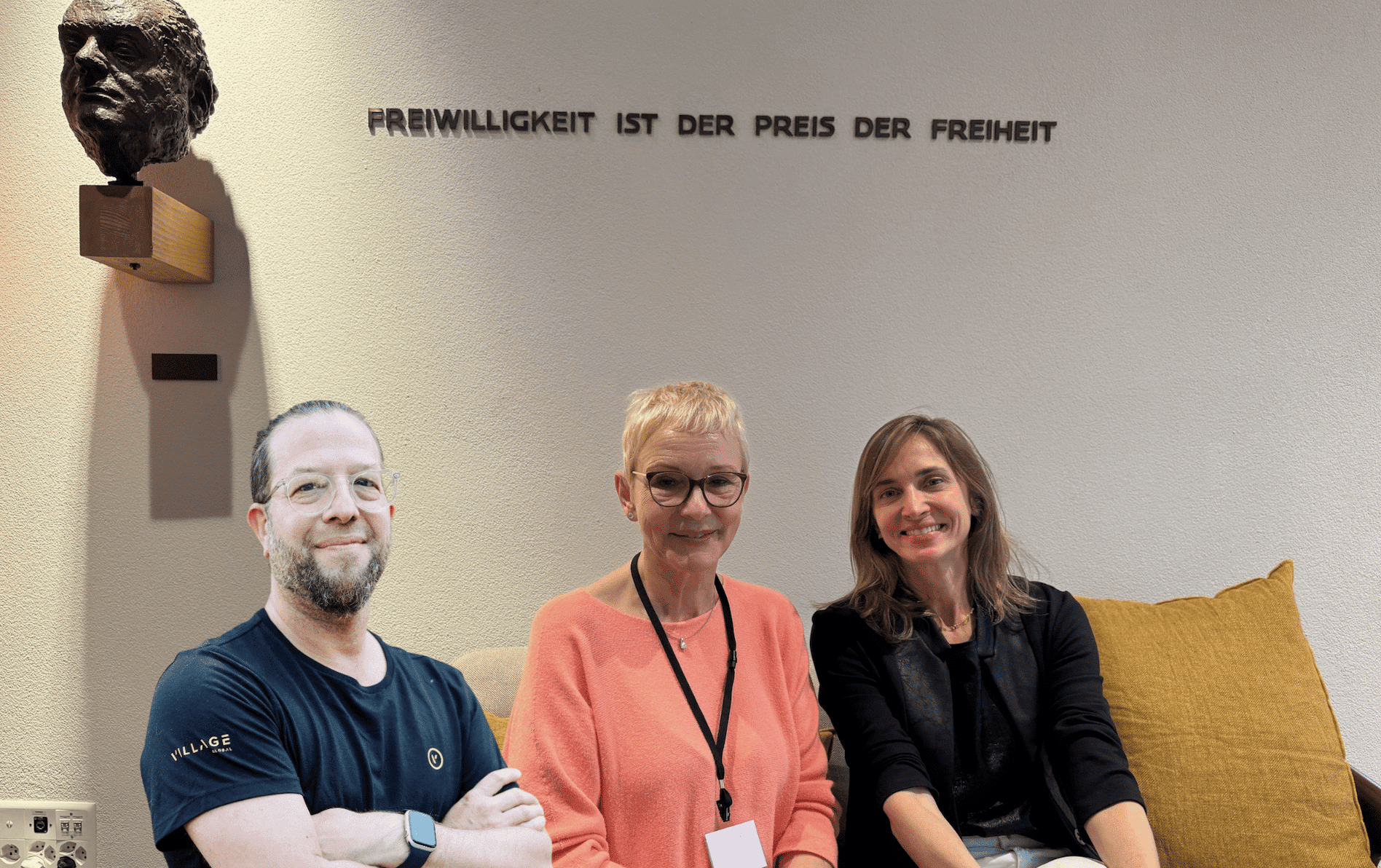The founders of “ComplexChaos”, Maya Ben Dror and Thomy Lorsch, want to rethink negotiations with the help of artificial intelligence. Their aim is not to reduce complexity, but to understand and use it. In an interview with thebrokernews, they explain why AI plays a crucial role in negotiations in particular, how it compensates for human weaknesses and why genuine trust is the key to better decisions.
At the 21st European Trend Days in mid-March 2025, the Gottlieb Duttweiler Institute (GDI ) in Rüschlikon hosted an interesting event entitled “Highway to Heaven? How AI Transforms Society and Work”. Binci Heeb had the opportunity to speak with Dr. Maya Ben Dror, co-founder and Tomy Lorsch, co-founder and CEO of ComplexChaos.
What is the idea behind ComplexChaos – and why AI for negotiations?
Maya Ben Dror: Our world is more complex than ever. I’ve worked in different sectors – government, tech, NGOs, the World Economic Forum – and I’ve seen time and time again how hard it is to implement real change. I’ve learned that if we’re serious about climate protection or social justice, we need to learn to work better together. This is exactly where technology can help. With ComplexChaos, we want to show that AI can be a tool to create trust and make decisions more transparent and fairer.
Thomy Lorsch: In many organizations, decision-making still functions as it did in the last century – with rigid hierarchies and isolated thinking. But today’s challenges – climate, resources, global justice – require collaboration across borders. AI can help to facilitate communication between groups, translate perspectives and make conflicts visible before they escalate.
What can AI do better than humans in the negotiation process?
Thomy: AI can process infinitely more data than a human being – and recognize patterns that remain hidden to us. In multilateral negotiations – such as rainforest restoration in the Amazon – a wide variety of interests come together: local communities, international donors, NGOs and states. AI can help to structure this complexity and find solutions that are fair to everyone.
Maya: But above all, AI can uncover our own thinking errors. We all have biases – blind spots – that guide our decisions. One example is the so-called “sunk cost bias”, where we hold on to a project just because a lot has already been invested, even if it no longer makes sense. AI can recognize these patterns and help us to make smarter decisions.
But isn’t a lot of humanity lost – such as emotions, empathy, intuition?
Maya: Emotions can be helpful – but they can also be manipulative. That’s why we don’t want to abolish them, but rather make them conscious. Intuition, on the other hand, is extremely important. It opens us up to new things, to change. This is key in negotiations: Only if we are prepared to change our perspective will real solutions emerge. We work closely with the Presencing Institute at MIT to promote precisely this – the connection between inner attitude and outer action.
Thomy: AI can support these processes, for example by making prejudices visible or analyzing the dynamics of conversations. But it will never replace human intuition. Our vision is a kind of hybrid negotiation: AI analyzes, humans decide. It’s about support – not replacement.
Why are people often more open to AI than to other people?
Maya: Studies show that humans are often more honest with AI. The reason: AI doesn’t judge. It doesn’t look at you askance, it doesn’t interrupt, it doesn’t judge. Many non-verbal signals – facial expressions, tone of voice, body language – are eliminated. This makes people feel safer, they can open up and reflect. We believe that this has enormous potential – especially in difficult conversational situations or when dealing with sensitive topics.
What does “sustainable AI” mean to you in concrete terms?
Maya: For us, “sustainable AI” doesn’t just mean environmental sustainability – such as energy efficiency – but also ethical fairness, long-term social benefits and global accessibility. We want to ensure that AI is not just developed for the few, but for the many – including those who have hardly had a voice so far. That is why we are thinking ahead: can AI one day also “speak” for nature, for future generations or for endangered species?
How do you measure the success of such AI-supported negotiations?
Thomy: Traditionally, you look at closing rates or negotiation speed. But that doesn’t go far enough. We are interested in other questions: How long does an agreement last? Is it perceived as fair? Did everyone feel seen and heard? We develop instruments that make such factors measurable – including qualitative criteria such as trust, comprehensibility or implementation capability.
Chaos as an opportunity – what does that mean in concrete terms at ComplexChaos?
Thomy: Chaos has a bad reputation, but it is the source of creativity. In complex negotiations, unexpected dynamics often arise through the interaction of different players. We work with methods from complexity research to make these dynamics visible. AI helps us to grasp the big picture – and use it to make better decisions. We say that chaos is not the problem, but the material from which solutions are created.
ComplexChaos doesn’t just want to create order – it wants to enable us to deal better with disorder. Artificial intelligence becomes a translator, a source of inspiration, a mirror holder. And the human being? Remain at the center – as decision-makers, as listeners, as negotiators. Because real change doesn’t start with perfect systems, but with honest conversations.
Read also: AI and the transformation of the global working world





